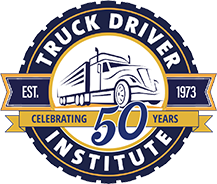What to Know About Freelance Trucking
Whether you’re just starting out or have been in the field for a while, freelance trucking may seem like an exciting and possibly very lucrative career. Freelance trucking can mean a greater share of the profits, but can also require more work. There are plenty of individual factors, but large and small, can make or break a freelance trucking career.
 Things to Consider About Freelance Trucking
Things to Consider About Freelance Trucking
If you’re thinking about freelance trucking, there are some things to consider before you set out on this new and exciting path. In many ways, it is still similar to traditional trucking – there are long hours, plenty of traveling, and of course more driving than most people can imagine – but there are some more unique aspects to freelance trucking to consider that make it very different.
1.Finding Work
A hard part of any freelance job is that finding work falls to the worker. It’s a big risk to take on the work of figuring out what jobs can make a year profitable, and to build long-term relationships with companies. There are essentially two options with freelance trucking: to go at it totally alone or to work with an independent company.
Being completely independent can be great if you have some capital upfront – especially if you own your own truck and/or already have connections within the trucking industry. Independent companies are usually dispatchers, middle men that will put out a call for drivers and if you’re available, you can grab the job.
This is good for those that are maybe just starting in their trucking careers and looking to build those connections. This is why places like the Truck Driver Institute can really help with a career – with every teacher being a past driver, we have enormous amounts of connections to the industry and can help anyone get set up with a freelance trucking career.
2.Becoming a Business
Either way, doing freelance trucking means you have to reorient your mindset and see the companies you drive for as clients. Remember, you’re not just a driver anymore: you’re a business owner. You will need to set your own schedule, foster relationships, manage finances, and do work that you may not have considered before – including networking events, tracking industry demands and trends, price negotiations, and more.
3.Invoicing
Invoicing can be a general pain for freelancers, as the process can take weeks or even months to go from sending over the invoice to actually getting paid. There is no regular check to rely on in freelance trucking, which means you must be prepared to budget and keep careful track of your finances.
One option to help deal with invoices can be to use invoice factoring. This is where you ‘sell’ some (if not all) of your outstanding invoices to a company. The company will then pay you most of the invoiced amount directly, and go on to collect payment from your customers. This is great if you need money quickly and can afford the fees that come with it, and many in the freelance trucking community use invoice factoring permanently as a way to collect payment.
4.Know the Real Salary (and Cost) of Freelance Trucking
Freelance trucking can net you quite a bit in gross pay – in fact, freelance truck drivers average $183,000 a year. However, various expenses can run you up to (and over) 70%, meaning the average owner operator takes home around $50,000 – $60,000. Independent carriers may pay between 25% to 85% of gross load revenue – so with high-paying loads you can make a decent cut, but low-paying loads will also help. Of course, with this situation it can be hard to plan your overall finances.
Expenses break down into two different categories: the fixed and the variable. Fixed expenses include things like insurance, truck payments, and permits; they’re costs you can count on. Variable costs can be more controlled. An example of this can be seen with fuel costs: if they’re especially high, you may want to renegotiate your fuel surcharges and take a look at how to reduce your idle time and empty miles. You will also have to pay for repairs to your truck. Calculating the true cost of repairs can mean taking into consideration the cost of the part, the cost of repair, and the amount of time you’ll be out of work for repair.
Not to mention that with freelance trucking, you will always want to keep tabs of your truck payments and save ahead of time, just in case the worst happens. If you need a new truck for some reason – maybe yours breaks down or there’s a wreck – you will now have to make payments on a truck that cannot make you money. If you do have to buy a new truck, consider looking at a “new-to-you” rig from a brand with a good reputation.
A huge part of success is knowing your strengths and weaknesses, which means you should also know that if you’re not a financial guru, you may need to budget for an accountant to help out with maximizing dedication, creating budgets, and of course, doing taxes. Keeping track of your finances is truly a never ending part of being a successful freelance truck driver.
Begin Your Freelance Trucking Career Today!
Of course, before you can take the first steps into freelance trucking, you have to become a trucker! If you don’t yet have your Class A or Class B commercial drivers license, the Truck Driver Institute can help you today. With a three week training program and an 86% success rate in job placement after graduation, Truck Driver Institute can help newcomers and those who are getting back into the industry after some time away in nearly a dozen different locations.
We are now training in automatics and ten speed manual transmissions company wide, giving you all the tools you’ll need to change your career and your life. To learn more about our exciting and affordable three week program, contact the Truck Driving Institute today.
Get Started
Get your Class A CDL in our friendly, supportive CDL training program. TRAIN with experienced instructors – multiple good-paying, secure job choices with benefits available for eligible graduates. EARN $700 – $1000+ / week to start as a truck driver. Get started today by filling out the form below. We look forward to hearing from you!
